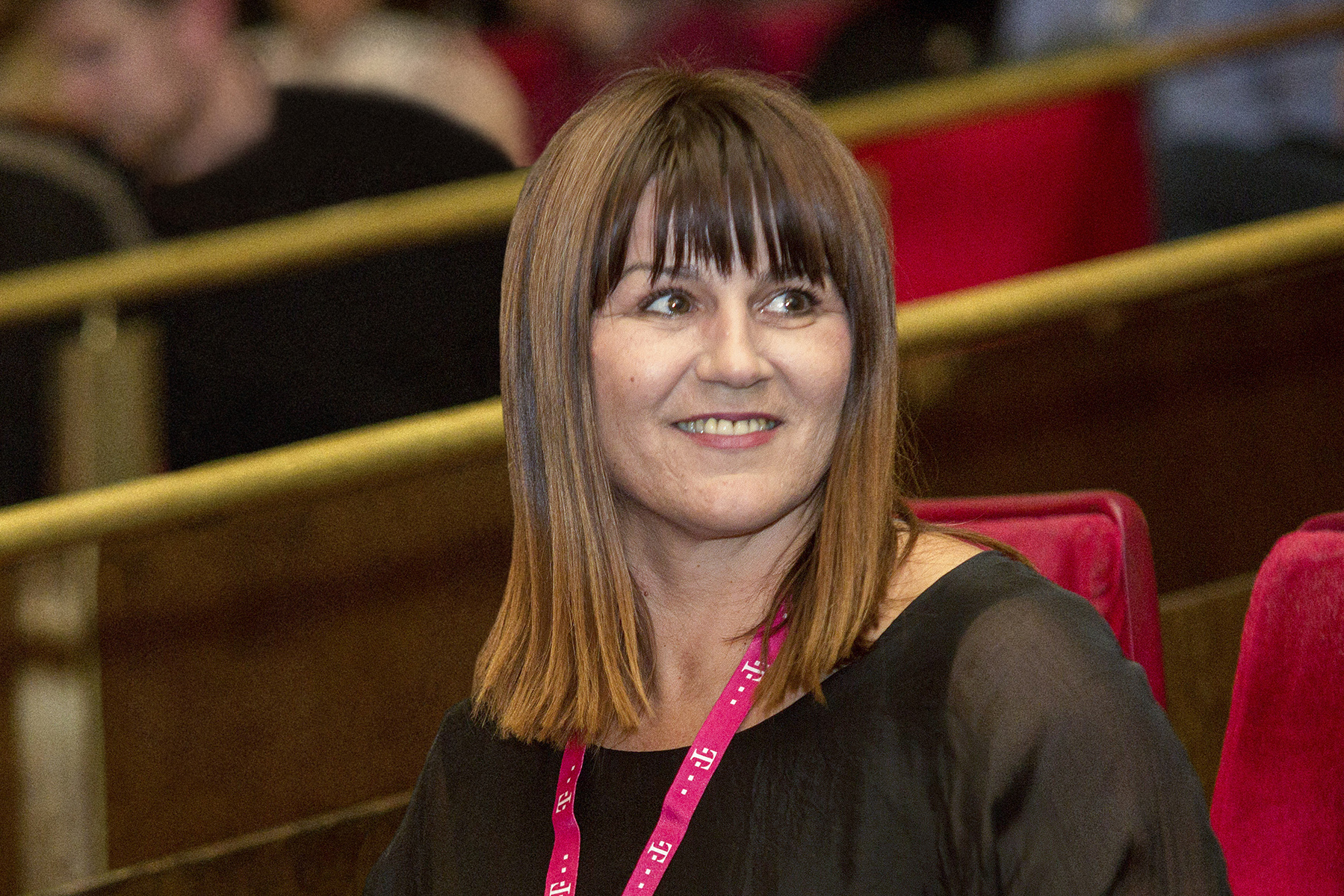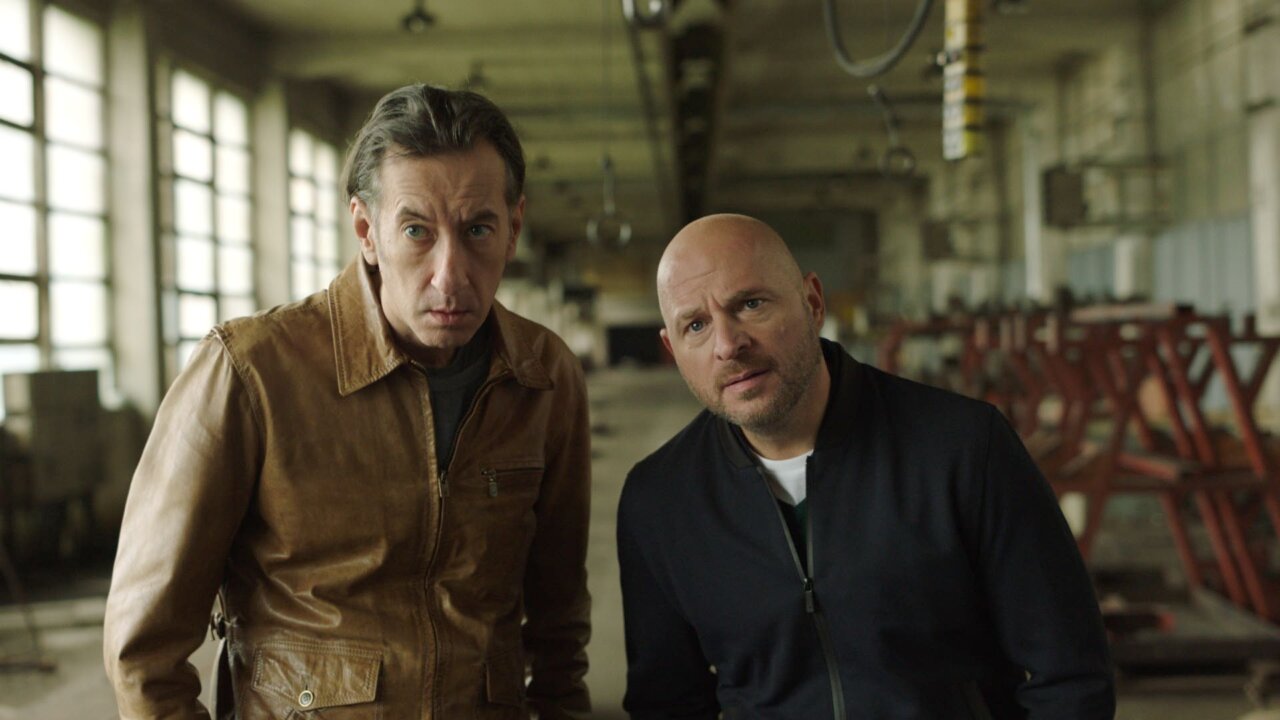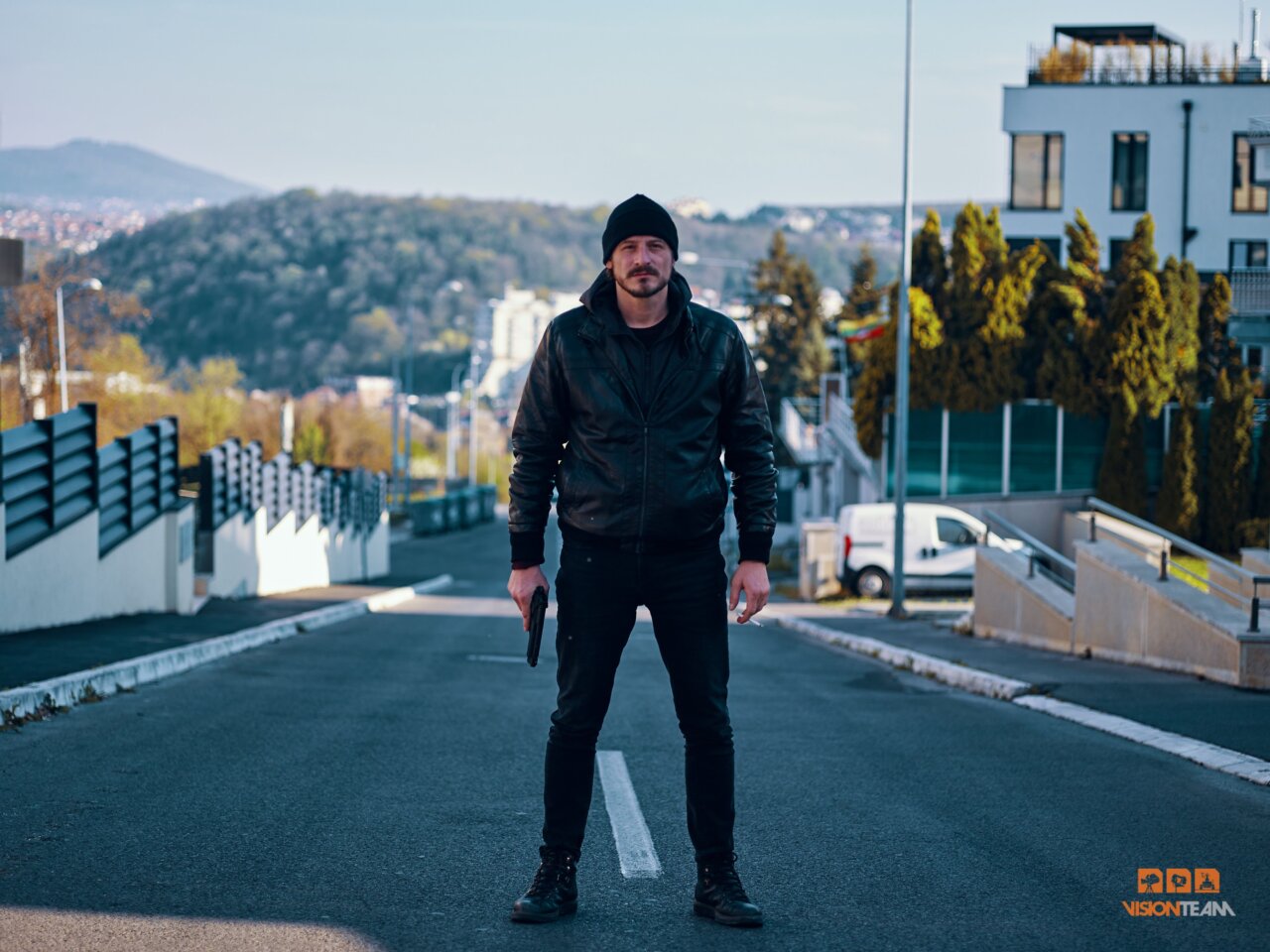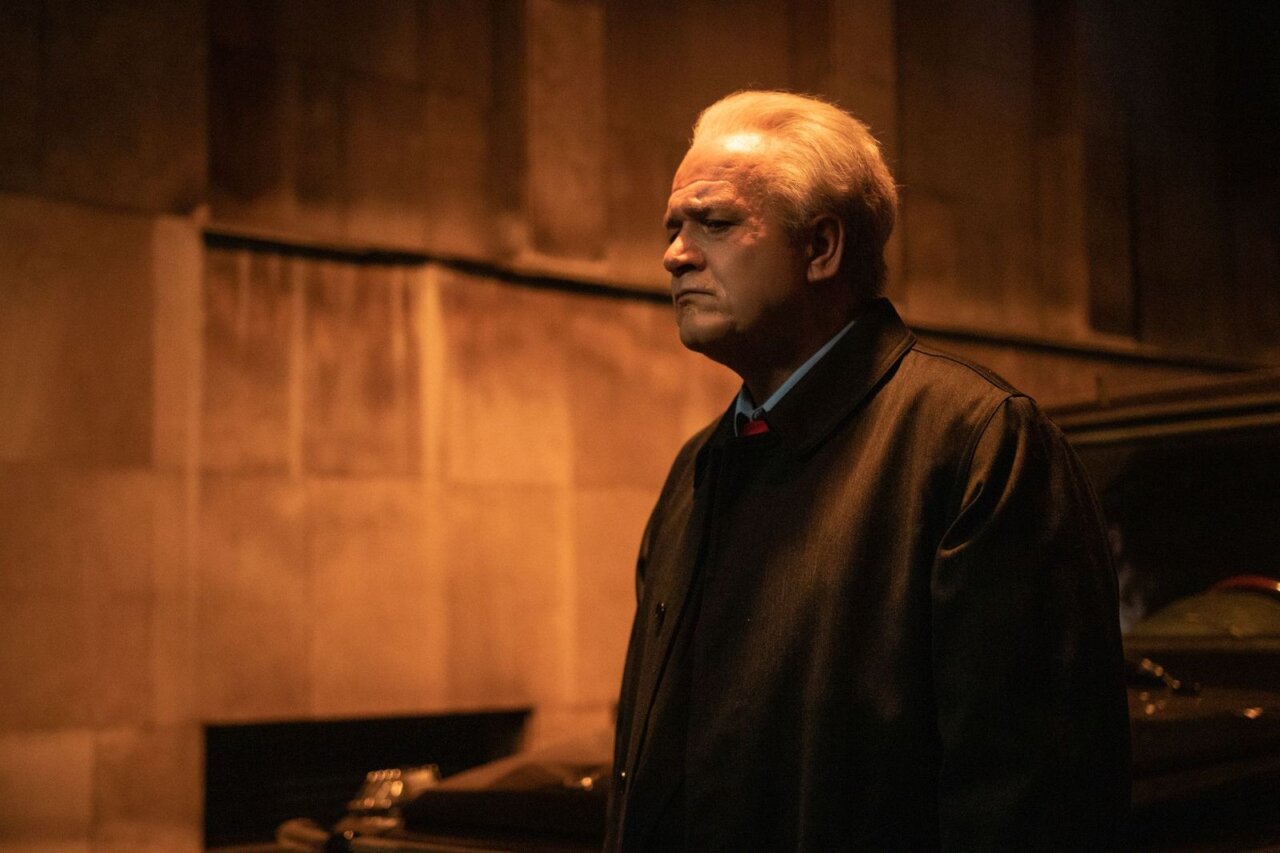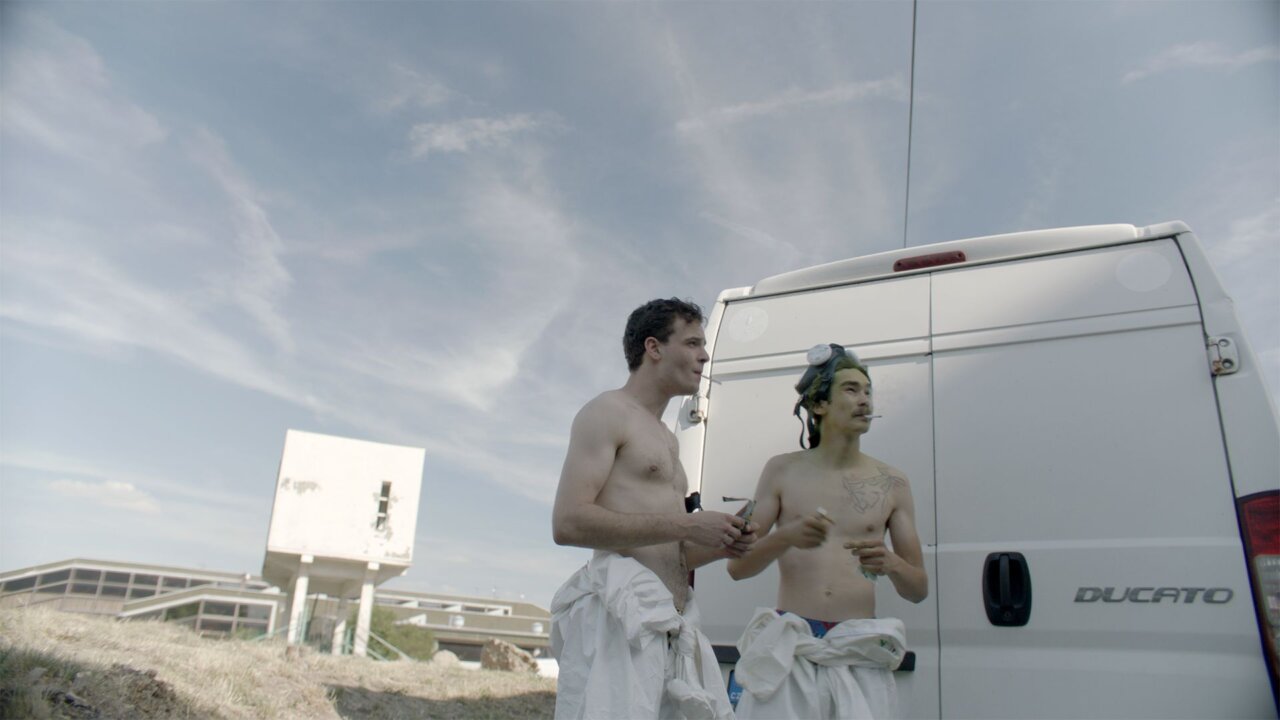The poignant drama The Last Socialist Artefact follows two businessmen to a provincial backwater town to negotiate the re-opening of an old factory. Over the course of eight episodes the reasons behind the shrewd move become clearer – as does the effect the prospect of employment has on the town. For the townsfolk who were stuck in a limbo for over 20 years, the impact of newly found hope can be felt almost immediately.
Based on the book „No Signal Area“ by Robert Perisic, the wry Croatian series explores fundamental questions about the corrosive forces of the free market on local communities: Should there be a right to work? And what alternatives might there be for the way we lead our economic lives.
Seriencamp’s artistic director Gerhard Maier talked in-depth with producer Ankica Jurić Tilić about the genesis of the series and the future of Croatian high-end productions in an increasingly international market.
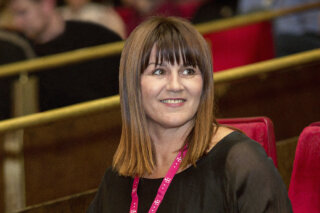
Ankica Jurić Tilić: I think we all witnessed the fact that TV series became as popular as possible, I would say. And these pandemic times only contributed to this faster growth of the streamers and the need for content such as TV series. And when it comes to the domestic audience in Croatia it was always very much in demand and it was to our grief only the national television that was actually showing a strong interest for high quality programs, because the commercial television broadcasters in our market are not interested in a high-end TV series or drama program. In general, they are more into sitcoms and entertainment programs. So actually the national television was the only strong partner that we have had in our creative market and every year they do invest into several high quality drama series – from the perspective of an independent producer I would say not enough, but compared to the other countries in the region we are doing quite well. Because they finance or co-finance at least four television series per year, which is of course not enough, but yeah it's constant and it keeps growing.
Do you think it’s still important to create series that can be successful outside of Croatia, or do you focus on your domestic audience first and then the rest will come?

Ankica Jurić Tilić: For me it matters a lot. Because as a person and as a producer I’ve always seen Europe as my playground, not Croatia only. Because what I really like about this European thing is that all these initiatives and all the programs such as “Media” (The Creative Europe) or “Eurimages” and many more, they tend to encourage the differences within the same market. They tend to encourage you to be yourself and be truthful to your country and your cultural heritage – but within a wider market.
With the films that I produced, it was always important to me that I have this reach and that my films travel, and I was more or less successful. So I was very ambitious about making something that is very local and very truthful to our social and cultural surroundings but can also travel the world. So this is why I wanted to produce this one as an international co-production and this is why I was really trying to put it on the wider market. So far it’s going well, but when it comes to sales it is yet to be seen, I'm still in the dark in this area.
Maybe it is just the hopeful perspective that I have as someone who loves to watch series, but The Last Socialist Artefact does stand out. It stands out very strongly and it has such a strong vision and voice. When we saw the first ten minutes of the first episode everybody on the program team was like: “Okay we want to have this in the program!” You mentioned that it is very strongly rooted in the cultural and social history of the region, and I find that very interesting.

Ankica Jurić Tilić: First let me tell you what it is that I recognize as an international potential. It has a lot to do with the history and everything, but there is something that I find extremely appealing for the whole world: and it’s a person’s right to work. We need the right to work. The right to work is one of the most important, if you deprive a person of the right to work you are really ruining the dignity and the hope and the purpose of a human being. So this series actually talks about what happens if we are deprived of the right to work and what happens if each person is turned towards their own problems, their own destiny and their own emotional spectrum. What if we start caring about each other, what if we do something collectively and the joy it brings to do something as a group. So this is something that can easily travel, I believe. And we had similar reactions in Spain and in France where the series was screened during festivals. People recognize their own small cities. The closing of the huge factories actually leads to the death of the city and these problems are very well recognizable all around Europe.
I think that's what makes it so universal for me: The Last Socialist Artefact is obviously rooted in the history of Croatia but it talks about things that in the current state of the world everybody is concerned with, no matter if they live in the countryside of France or here in Bavaria or in China. Everybody has to cope with this loss of community and I think this is what the series expresses in such a great way.

Ankica Jurić Tilić: The field of “work” - all of us, we became disposable. We can be get rid of every single moment and we can be easily replaced by anyone or by a machine. So this notion of a collective work and of creating something for the benefit of the society, it's evaporating. It's going away. And this story is talking about the privilege of building something together. This is what I like about it.
The series is based on a novel, so how was it developed and how did you bring it on the way?

Ankica Jurić Tilić: Yes, it is based on the book written by Croatian author Robert Perišić and the book was published in the US and France and the UK which doesn't happen often to Croatian novelists. So it had a nice echo internationally and I optioned the novel, I picked up the topics from the novel and the structure that I thought would be suitable for a TV series and I picked the writers and the director. I optioned the book in 2016 and finished the series this year, so it was a five years long process of development, financing and putting it out. It was very exciting and it was really difficult – as the development process always is – because we come from such a small market the TV series had very tiny chances to be produced as an international co-production but we managed.
When you went out and looked for co-production partners, did it help that the novel was already well known?

Ankica Jurić Tilić: Yeah, that's very interesting – I thought it would be helpful, but basically it was not. And I had the same issue with the director. So I have this novel that is published in big, strong markets and I have a director who has a jury award from Cannes, then I have a top cast in my region and really exceptional writers but they're not known in Europe. Me, as Ankica, and my company Kinorama, we have really strong references in the international field as well, but none of that helped. Because it is so different to be a very important and strong writer in Croatia. It's not something like Elena Ferrante or Italo Calvino, it's not that range. We are so tiny on the map and for us everything is four times more difficult than for the producers or authors coming from the highly developed audio visual markets. For us it's always full of barriers and it's full of obstacles. But eventually we have a happy ending, so I will not complain.
Do you see a change happening in the last few years that audiences in Europe and in other parts of the world are much more looking for the kind of voices and perspectives that they don't know and that this offers a huge opportunity?

Ankica Jurić Tilić: I agree, but still we need a great push such as a strong international sales agent. I mean, I've tried to put it out and I did at the festivals. And the comments I'm getting, the things the people like the most – besides the topic and the strong characters and the regular stuff that people appreciate about the filmmaking and the television stories – the the comments I got was: “This is unusual, this is unexpected: I never know what's going on in the next scene. It is full of surprises. It has these strengths that we are not used to, because it's not done in a schematic way that most of TV is.” All the comments were about the freshness, so I really think there is a need for that. We all want to see Lithuanian TV series that will surprise us, or one coming from Taiwan. We do want to step out of the schematic, rich, high-budget TV series that we get via streamers every single day. So there is a need, but the biggest challenge is how to stand out, how to find your place, how to find your way to that audience that is looking for something non-conventional, fresh or different.
This is at least what I see with the people I work with and talk with a lot. They are really a little bit fed-up with the stereotypes and those stereotypical stories that they're being served. And they want to see something that breaks the mold and stands out. And I think this is what's important for us here at the Seriencamp Festival: to pick our programme from the whole range of what's happening in the world.

Ankica Jurić Tilić: Yeah, this is what I wanted to tell you: As producers we really appreciate you festivals, because this is actually the only platform that we can reach to be selected and stand out and get a chance to be seen by the audience or buyers and distributors. Otherwise it's very difficult for us to reach them. Having the festivals as a promotional platform for our work is really valuable for us, so I really appreciate your work and the way you are helping us to reach the buyers and the audience.
We hope at least that it helps a lot! But how was the reaction in Croatia towards the series?

Ankica Jurić Tilić: It hasn’t screened in Croatia yet. It will be at the end of the year, right after christmas. So we got quite a late slot compared to the date when I delivered this TV series to the national TV. But they decided to screen it at the end of December, once per week in this prime time Monday slot that they have for drama programs. So there are no reactions, yet. I'm really really looking forward to the broadcast, but i think it will be easy on our market. It's easier to be liked by a local audience, because these things that I mentioned before that didn't play for me on the international ground – a great, well-known director, who’s very much appreciated by the audiences in the region and the top cast that we have – that all will play in our favor.
What kind of development do you expect in the next few years in Croatia or in the region? Are more co-productions going to be possible between, for example, Croatia and Slovenia, like Croatia and Serbia?

Ankica Jurić Tilić: I hope so. Because in the film business it started much earlier and it proved to be successful. So I really hope that we will transfer this model to the TV series much more than we did before. These collaborations were exceptional but I really hope they will become like a standard way of producing.
In that regard how tight-knit is the community in Croatia itself? Is it like for example here in Germany, where even though it's a huge country it sometimes seems that a lot of the same people work together and know each other?

Ankica Jurić Tilić: Of course it's very strong. For example: we don't even need to do casting at all, because we know all the actors that work in Croatia and we know their theatrical work, short films work, feature films, TV series – everything. We are only a four million people country, so it's like two German cities together. So it's a privilege, but also it can play as a disadvantage, because when you need to pick someone fresh and new, it's not as easy as it is in the United States for example. But it definitely has advantages as well, because you get to work with the same people on several projects and then this intuition that is usually a key factor between, for example, the camera operator and the director, or director and the actors – we can do this jump cut into the process, we don't need to go through this process of getting to know each other and developing the common ground to build something new. We are already there, because we all worked together in different kinds of combinations on previous films. So it's much easier for us to get in the right temperature to do the job.
